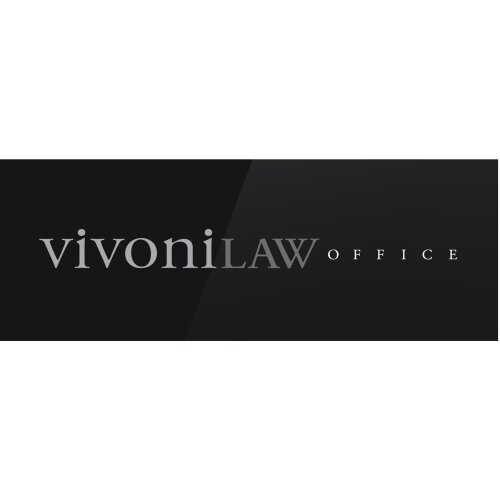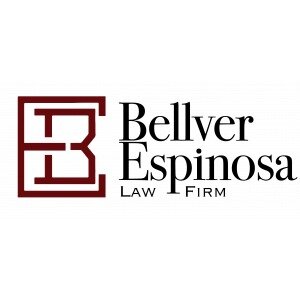Best Public-Private Partnerships (PPP) Lawyers in Puerto Rico
Share your needs with us, get contacted by law firms.
Free. Takes 2 min.
Or refine your search by selecting a city:
List of the best lawyers in Puerto Rico
About Public-Private Partnerships (PPP) Law in Puerto Rico
Public-Private Partnerships, often referred to as PPPs, are collaborative agreements between government entities and private sector companies to finance, build, and operate projects that serve the public interest. In Puerto Rico, PPPs have become an important tool for addressing infrastructure needs, modernizing public services, and encouraging private investment in key sectors such as transportation, energy, education, and healthcare. The main law governing PPPs in Puerto Rico is the Public-Private Partnerships Act, which establishes the legal framework, procedures, and oversight mechanisms required to develop and implement these partnerships on the island.
Why You May Need a Lawyer
Legal expertise is often essential when participating in a Public-Private Partnership in Puerto Rico. Here are some common situations where a lawyer’s guidance can be invaluable:
- Reviewing and negotiating PPP contracts to ensure your interests are protected. - Advising on compliance with local laws and regulations specific to PPP projects. - Assisting with the bidding or proposal process on government PPP projects. - Helping resolve disputes between public agencies and private partners. - Ensuring proper structuring and financing of PPP projects. - Navigating issues related to project transfers, modifications, or terminations. - Addressing regulatory issues, such as environmental or labor compliance. - Advising on risk allocation and liability concerns in PPP agreements. - Guiding foreign investors through Puerto Rico’s PPP framework. - Representing parties in administrative or judicial proceedings related to PPP matters.
Local Laws Overview
Puerto Rico’s PPP framework is primarily governed by Act No. 29-2009, also known as the Public-Private Partnerships Act. This law:
- Defines what constitutes a PPP and the types of projects eligible for such partnerships. - Establishes the Public-Private Partnerships Authority (P3 Authority), the governmental body responsible for evaluating, approving, and overseeing PPP projects. - Sets forth the competitive process for soliciting, reviewing, and awarding PPP contracts. - Outlines the required studies and feasibility analyses for proposed projects. - Provides rules regarding risk sharing, financing, and project management between public and private entities. - Establishes transparency measures, including required disclosures and public hearings for certain projects. - Regulates the procedures for amending, terminating, or transferring PPP agreements. - Addresses specific conditions for unsolicited proposals and alternative procurement processes. - Requires adherence to local labor, environmental, and other applicable regulatory standards. - Ensures oversight and accountability through regular audits and reports to the public and legislative authorities.
Frequently Asked Questions
What is a Public-Private Partnership (PPP) in Puerto Rico?
A PPP is a contractual arrangement between a government entity and a private sector company to deliver infrastructure or public services. In Puerto Rico, PPPs can involve building, operating, or managing public assets, often for a set term.
Who oversees PPP projects in Puerto Rico?
The Puerto Rico Public-Private Partnerships Authority (P3 Authority) is responsible for overseeing the development, evaluation, negotiation, and implementation of PPP projects on the island.
What types of projects are typically conducted through PPPs?
Common PPP projects in Puerto Rico include roads, bridges, energy facilities, schools, ports, water infrastructure, and technology services.
How does the PPP selection process work?
PPP projects go through a competitive selection process managed by the P3 Authority, involving requests for proposals (RFPs), evaluations, negotiations, and awards.
Can private entities propose PPP projects to the government?
Yes, private entities can submit unsolicited proposals to the government, but these must meet specific requirements and are subject to review and approval by the P3 Authority.
What legal protections are available for investors in PPPs?
PPP contracts in Puerto Rico establish clear rights and obligations for all parties and provide dispute resolution mechanisms, including options for arbitration and recourse through the local courts.
Are there transparency requirements for PPPs?
Yes, the law mandates transparency measures, such as public disclosure of key project documents and public hearings for certain projects.
How are risks shared between public and private partners?
Risk allocation is determined through the PPP contract, with factors such as financing, construction, operation, and demand risks allocated to the party best able to manage them.
Do PPP projects need to comply with local environmental and labor laws?
Yes, PPP projects must comply with all applicable Puerto Rico and federal environmental, labor, and construction regulations.
What happens if there is a dispute over a PPP agreement?
Disputes are typically addressed according to the procedures specified in the PPP contract, which may include negotiation, mediation, arbitration, or court proceedings as a last resort.
Additional Resources
If you need more information or assistance regarding PPPs in Puerto Rico, consider reaching out to the following resources:
- Puerto Rico Public-Private Partnerships Authority (P3 Authority): The main government body responsible for PPPs. - Puerto Rico Department of Economic Development and Commerce: Provides information on doing business and investing in Puerto Rico. - Puerto Rico Bar Association: Can help you find qualified attorneys with experience in PPP law. - U.S. Department of Commerce - Commercial Service: Offers resources for foreign investors. - Professional associations and trade groups focused on infrastructure development in Puerto Rico.
Next Steps
If you are considering involvement in a Public-Private Partnership in Puerto Rico or require legal assistance related to an existing project, here are some steps to consider:
- Collect and organize all relevant project documents and correspondence. - Identify the specific legal issues or questions you need help with. - Consult with an attorney who has experience in PPP law and understands Puerto Rico’s local legal landscape. - Prepare a list of questions for your initial meeting with a lawyer. - Consider reaching out to local government agencies or the P3 Authority for information on current PPP opportunities or regulatory requirements. - Stay informed about updates to PPP laws and regulations by following official announcements and industry news. - If you are ready to move forward, your attorney can guide you through the process, from project evaluation and proposal submission to contract negotiation and execution.
Seeking early legal guidance can help ensure that your interests are protected and your PPP project progresses smoothly within Puerto Rico’s legal framework.
Lawzana helps you find the best lawyers and law firms in Puerto Rico through a curated and pre-screened list of qualified legal professionals. Our platform offers rankings and detailed profiles of attorneys and law firms, allowing you to compare based on practice areas, including Public-Private Partnerships (PPP), experience, and client feedback.
Each profile includes a description of the firm's areas of practice, client reviews, team members and partners, year of establishment, spoken languages, office locations, contact information, social media presence, and any published articles or resources. Most firms on our platform speak English and are experienced in both local and international legal matters.
Get a quote from top-rated law firms in Puerto Rico — quickly, securely, and without unnecessary hassle.
Disclaimer:
The information provided on this page is for general informational purposes only and does not constitute legal advice. While we strive to ensure the accuracy and relevance of the content, legal information may change over time, and interpretations of the law can vary. You should always consult with a qualified legal professional for advice specific to your situation.
We disclaim all liability for actions taken or not taken based on the content of this page. If you believe any information is incorrect or outdated, please contact us, and we will review and update it where appropriate.
Browse public-private partnerships (ppp) law firms by city in Puerto Rico
Refine your search by selecting a city.













